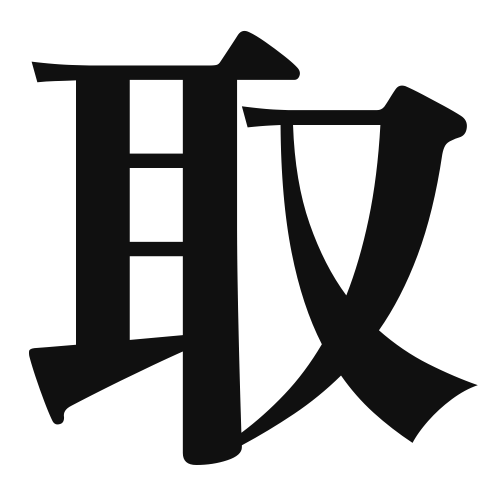1. Overview of Meaning
The kanji 取 (pronounced “toru”) generally means “to take” or “to obtain.” It is used in various contexts to indicate the action of acquiring or receiving something.
2. Formation and Radical
Formation of the Kanji: The kanji 取 is a compound character (会意文字) that combines elements to convey its meaning. It consists of the radical 扌 (hand) on the left, which suggests an action involving the hand, and the character 去 (to go) on the right, indicating the act of taking something away.
Radical: The radical for 取 is 扌, which is related to actions performed by the hand.
3. Examples of Usage
Common Words and Phrases: Some frequently used words that include 取 are:
- 取得 (shutoku) – acquisition
- 取り扱い (toriatsukai) – handling
- 取り消す (torikesu) – to cancel
Example Sentences in Daily Conversation:
- この本を取ってもいいですか? (Can I take this book?)
- 彼は新しい仕事を取りました。 (He obtained a new job.)
4. Synonyms and Antonyms
Similar Kanji: A similar kanji is 得 (toku), which also means “to obtain” but often implies gaining something beneficial or advantageous.
Antonyms: The antonym of 取 is 失 (ushinau), which means “to lose.” This represents the opposite action of taking or acquiring.
5. Cultural and Historical Background
Relation to Japanese Culture: The kanji 取 is often used in various cultural contexts, such as in traditional practices of taking or receiving gifts during festivals.
Proverbs and Idioms: One common idiom is 取るに足らない (toru ni taranai), which means “insignificant” or “not worth taking.” This reflects the cultural perspective on valuing what is truly important.
